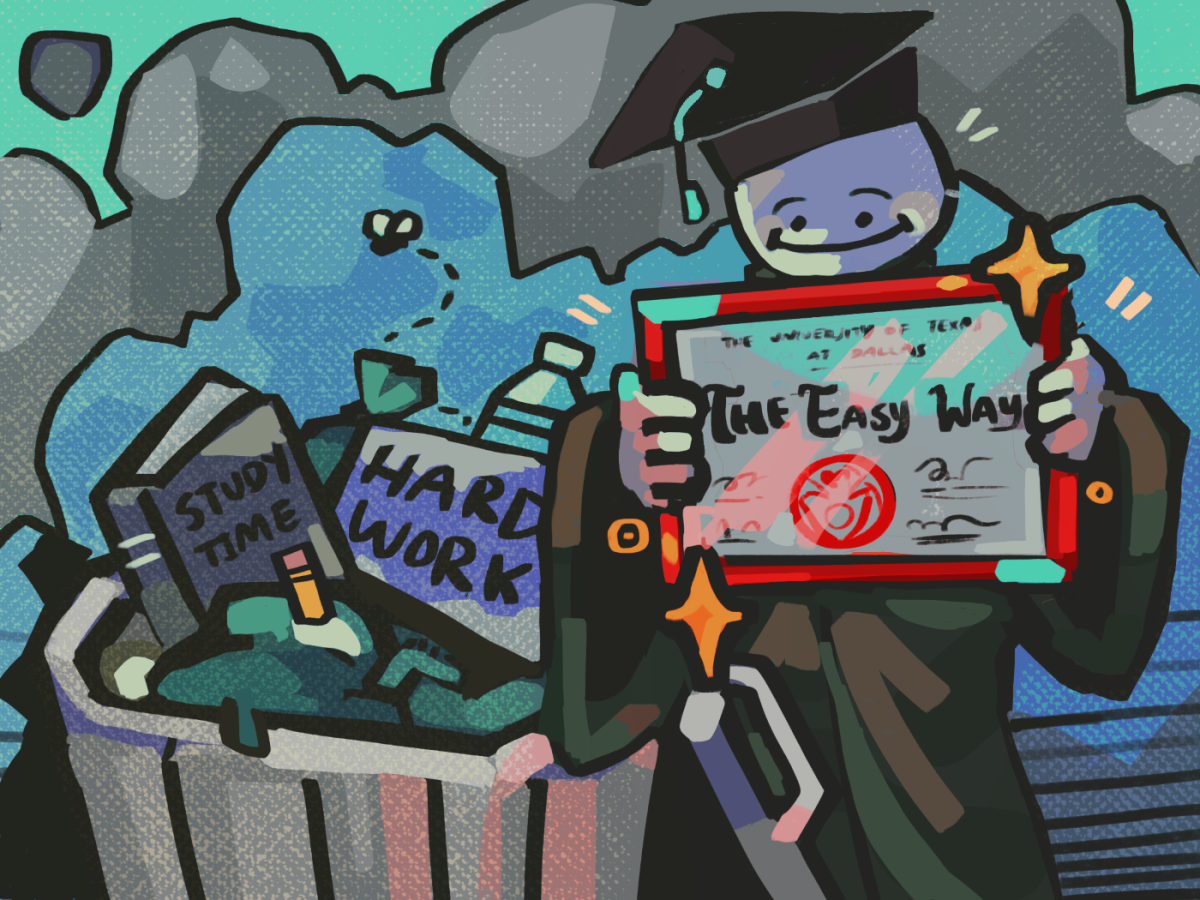Imagine this: you’re in a core class, past the withdrawal deadline, and suddenly a few choice classmates start to complain about the level of work required to pass. Exams are weighted too high, the projects are too long and we shouldn’t have to take this class to graduate. Entitled students: why do you feel like you’re owed a degree?
The truth is, higher education is supposed to be hard. If it wasn’t rigorous, a four-year diploma would hold no weight. An undergraduate degree is supposed to be difficult, and for that reason, it’s normal that some people may drop out. If you don’t attain the necessary knowledge that a degree represents, then you shouldn’t get an easy pass. Beyond a simple bad attitude, feeling entitled to a diploma idea does demonstrable harm to classroom conduct, our ability to learn, the value of our degrees and even our future job prospects. So next time you fail a course, don’t automatically blame the professor, and don’t expect success to be handed to you.
In college, if you can’t hack it, no, you don’t deserve to graduate. And you don’t deserve to have achievements handed to you. The main point of a diploma is to prepare you for the future: to verify that you have the skills and knowledge to do your job or go into higher level studies. It’s no wonder that, according to a survey by the American Association of Colleges and Universities, eight in 10 employers believe that a college degree is important, as an education prepares graduates to succeed in the workplace. Your degree requirements aren’t cobbled together randomly — their core knowledge is standardized across universities to ensure that your employer can reliably tell what knowledge you are bringing to the job. Because of this, if you fail a degree-specific course, it definitionally means that you don’t have the skills a degree says you do. If a mechanical engineering major failed calculus, the dean wouldn’t just waive the requirement; they would have to retake calculus until they passed. Passing you along for no reason makes no sense and stops making degrees a good measure of skills when it comes to employment.
Ultimately, none of us automatically deserve an A. The combined forces of grade inflation — the increased average grade given to students — and the American culture of entitlement have coddled us into thinking that way. According to Erudera, in universities in France it is rare for a student to earn above a 16/20 — the equivalent of 80%. And the burden of attaining an A used to be a feature of our education system, too. It used to be that grades were distributed on a bell curve: the majority of students would receive a C, those who put in more effort received a B, and those who truly went above and beyond would receive an A. But now, after years of grade inflation as documented by the ACT’s research report, a high score is almost seen as standard. In 2022, more than half of American high schoolers received an A across four different subjects, English, math, social studies and science. And the dumbing down of grading has real world consequences on the quality of education: studies from both Brown University and the Thomas Fordham Institute have found that students learn more and perform better in the future when they have teachers who grade more strictly.
And this grade inflation has real consequences on the worth of a degree in the job market. A survey from the National Association of Colleges and Employers found that throughout the 2000s, the proportion of employers that screened applicants by GPA generally hovered between 70% and 80%. In a follow-up survey in 2023, this proportion had plummeted to only 37%. And it’s hard to argue with this decline, given diplomas no longer signify the level of knowledge they used to. The ACTA’s “What Will They Learn” survey, which looks at academic requirements at American universities, found that less than 30% of public and private colleges require that students take courses in the basic fields needed to have a well-rounded education, including U.S. Government or History, Economics and Literature. As the requirements for getting a degree become laxer, its relative worth shrinks and shrinks, watered down by meaningless and empty high marks. And when you demand that professors give you an easy A, you contribute to the continued decline of educational standards.
You might argue that having hard grading standards in college is just a money grab. After all, UTD has the highest tuition of any public school in Texas, and if you get held back, then they get an extra year of money. With all that money spent, it’s not fair if you don’t graduate, right? Unfortunately, this attitude is fundamentally harmful to your education. A study from 2022 found that more academically entitled students view their time in a college as a transaction and as a result are less engaged in learning and have poorer social adjustment. And more importantly, viewing UTD as a grifter is unfair given our school goes to great lengths to help people find alternate options and work through obstacles to graduate. Whether that be alternate core classes offered in the summer so students can graduate on time, or the advocacy of the Graduation Help Desk sorting out senior year struggles, admin goes to great lengths to make sure people graduate on time. If you are struggling, the Help Desk can make things easier, but that doesn’t mean they’ll do all the work for you.
At the end of the day, complaints are hard to stomach because, ultimately, no one is forcing you to go to college. You currently have access to higher education, an opportunity that around half of Americans will never enjoy, according to Lumina’s Stronger Nation report, and it is an immense privilege. And yes, at times it can be difficult. But so is life. And in the future, no one is ever going to hand you things just because you think you deserve them. You will have to put in work, and you will have to ask for support if you need it. College is the perfect place to learn that lesson.






